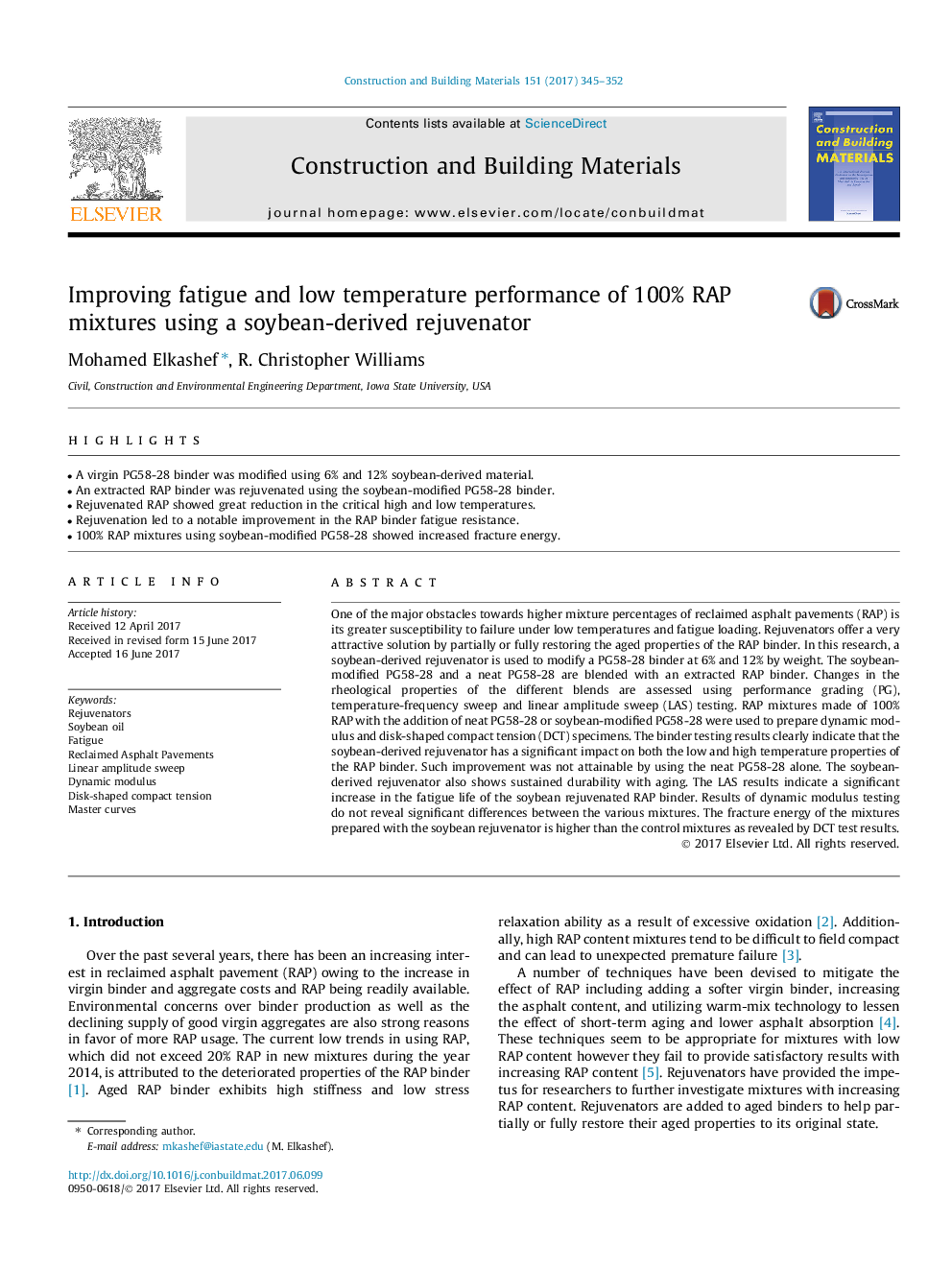| Article ID | Journal | Published Year | Pages | File Type |
|---|---|---|---|---|
| 4918189 | Construction and Building Materials | 2017 | 8 Pages |
Abstract
One of the major obstacles towards higher mixture percentages of reclaimed asphalt pavements (RAP) is its greater susceptibility to failure under low temperatures and fatigue loading. Rejuvenators offer a very attractive solution by partially or fully restoring the aged properties of the RAP binder. In this research, a soybean-derived rejuvenator is used to modify a PG58-28 binder at 6% and 12% by weight. The soybean-modified PG58-28 and a neat PG58-28 are blended with an extracted RAP binder. Changes in the rheological properties of the different blends are assessed using performance grading (PG), temperature-frequency sweep and linear amplitude sweep (LAS) testing. RAP mixtures made of 100% RAP with the addition of neat PG58-28 or soybean-modified PG58-28 were used to prepare dynamic modulus and disk-shaped compact tension (DCT) specimens. The binder testing results clearly indicate that the soybean-derived rejuvenator has a significant impact on both the low and high temperature properties of the RAP binder. Such improvement was not attainable by using the neat PG58-28 alone. The soybean-derived rejuvenator also shows sustained durability with aging. The LAS results indicate a significant increase in the fatigue life of the soybean rejuvenated RAP binder. Results of dynamic modulus testing do not reveal significant differences between the various mixtures. The fracture energy of the mixtures prepared with the soybean rejuvenator is higher than the control mixtures as revealed by DCT test results.
Keywords
Related Topics
Physical Sciences and Engineering
Engineering
Civil and Structural Engineering
Authors
Mohamed Elkashef, R. Christopher Williams,
